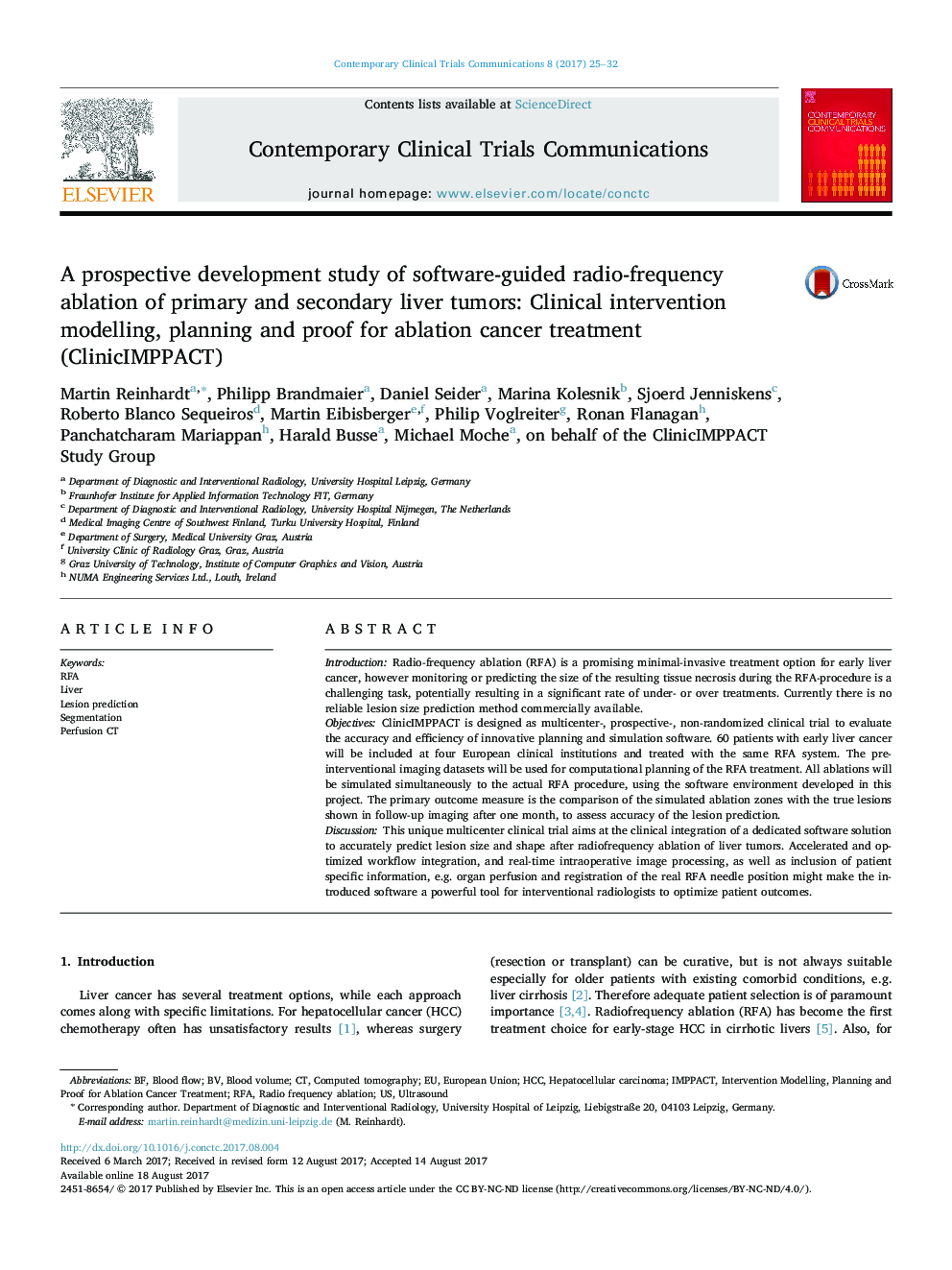| Article ID | Journal | Published Year | Pages | File Type |
|---|---|---|---|---|
| 5549615 | Contemporary Clinical Trials Communications | 2017 | 8 Pages |
IntroductionRadio-frequency ablation (RFA) is a promising minimal-invasive treatment option for early liver cancer, however monitoring or predicting the size of the resulting tissue necrosis during the RFA-procedure is a challenging task, potentially resulting in a significant rate of under- or over treatments. Currently there is no reliable lesion size prediction method commercially available.ObjectivesClinicIMPPACT is designed as multicenter-, prospective-, non-randomized clinical trial to evaluate the accuracy and efficiency of innovative planning and simulation software. 60 patients with early liver cancer will be included at four European clinical institutions and treated with the same RFA system. The preinterventional imaging datasets will be used for computational planning of the RFA treatment. All ablations will be simulated simultaneously to the actual RFA procedure, using the software environment developed in this project. The primary outcome measure is the comparison of the simulated ablation zones with the true lesions shown in follow-up imaging after one month, to assess accuracy of the lesion prediction.DiscussionThis unique multicenter clinical trial aims at the clinical integration of a dedicated software solution to accurately predict lesion size and shape after radiofrequency ablation of liver tumors. Accelerated and optimized workflow integration, and real-time intraoperative image processing, as well as inclusion of patient specific information, e.g. organ perfusion and registration of the real RFA needle position might make the introduced software a powerful tool for interventional radiologists to optimize patient outcomes.
